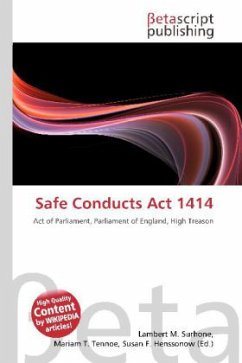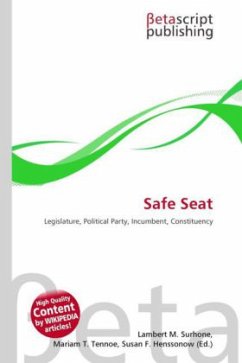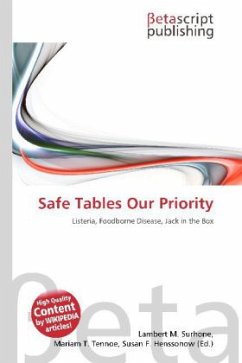Please note that the content of this book primarily consists of articles available from Wikipedia or other free sources online. The Safe Conducts Act 1414 (2 Hen. 5 c.6) was an Act of the Parliament of England. It made it high treason to break a truce or promise of safe conduct by killing, robbing or "spoilng" the victim. Unusually, the "voluntary receipt" or "concealing" of people who had violated this Act was also stated to be treason. This kind of treason was abolished by the Treason Act 1547, although the Act was not actually repealed until 1863. An act of Parliament (Act of Parliament) is a statute (commonly called a law) enacted as primary legislation by a national or sub-national parliament. In Commonwealth countries, the term is used both in a narrow sense, as the formal description of a law passed in certain territories, and in a wider (generic) sense for primary legislation passed in any country.
Bitte wählen Sie Ihr Anliegen aus.
Rechnungen
Retourenschein anfordern
Bestellstatus
Storno








